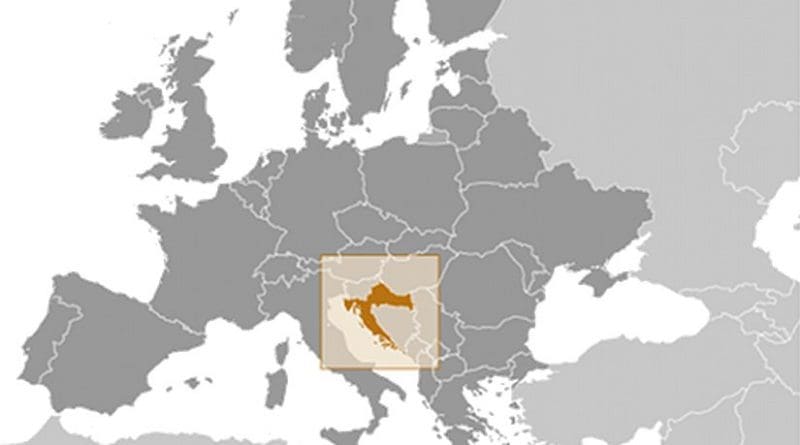Croatia: Conservative Opposition Looks Set To Win Parliamentary Elections
By RFE RL
(RFE/RL) — Preliminary official results in Croatia’s November 8 parliamentary elections show the conservative opposition defeating Prime Minister Zoran Milanovic’s Social Democratic Party (SDP) in a ballot widely seen as a referendum on his handling of the refugee crisis after failing to implement economic reforms.
The conservative Croatian Democratic Union (HDZ) won 63 seats in the 151-seat parliament in Sunday’s parliamentary election, according to partial data released by the state election commission at around 10 p.m. local time.
With around 15 percent of the ballots counted, Milanovic’s SDP looked poised to take 52 seats and the Most (“Bridge”) party 17 seats.
The preliminary results were released hours after polling stations closed in Croatia’s first parliamentary elections since it joined the European Union in 2013.
In the run-up to the ballot, opinion polls had suggested a narrow victory for the conservative alliance, the HDZ-led Patriotic Coalition.
The opposition has accused the ruling SDP of being too lenient toward the more than 330,000 asylum seekers who have passed through the Balkan nation since mid-September on their way to wealthier European countries.
The Patriotic Coalition had been expected to win by a margin of about five parliamentary seats in the 151-seat parliament, which would likely entail post-election negotiations with smaller parties.
“I am very optimistic, I believe we will win,” HDZ leader Tomislav Karamarko said after casting his ballot in Zagreb earlier on November 8.
The state election commission said that turnout at 4:30 p.m. stood at 46.57 percent of Croatia’s 3.8 million eligible voters, up slightly from 46.06 percent at the corresponding time in the 2011 elections.
The outcome of the elections threatens to disrupt the migrant flow crossing Croatia if conservatives come to power and implement tough measures.
The opposition has demanded tougher measures such as deploying troops and building fences at the border with Serbia, where most enter Croatia.
The influx of migrants fleeing conflicts in the Middle East, Asia, and Africa, has been a challenge for Milanovic’s government, but critics say he skillfully used the crisis to divert attention from economic problems and improve Social-Democrats’ ratings ahead of the vote.
“People, you know how important this is. These are the most important elections since 4 years ago,” Milanovic said after voting.
His ruling coalition, which campaigned with the slogan “Croatia is Growing,” has repeatedly accused the opposition of corruption.
Croatia remains one of the poorest-performing economies in the EU, and the government had been blamed for failing to enact reforms to its public sector or improve the country’s business climate over the past four years.
Unemployment stood at 16.2 percent in September — 43.1 percent among young people — while public debt stands at nearly 90 percent of Croatia’s gross domestic product.

